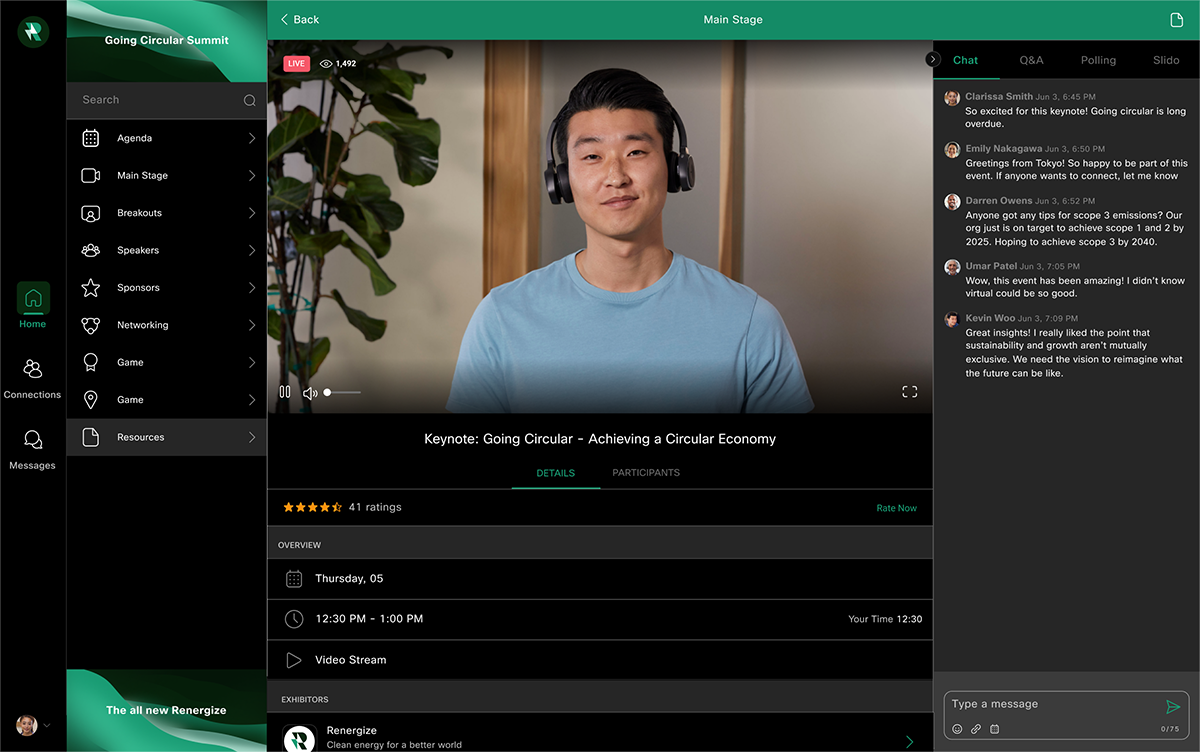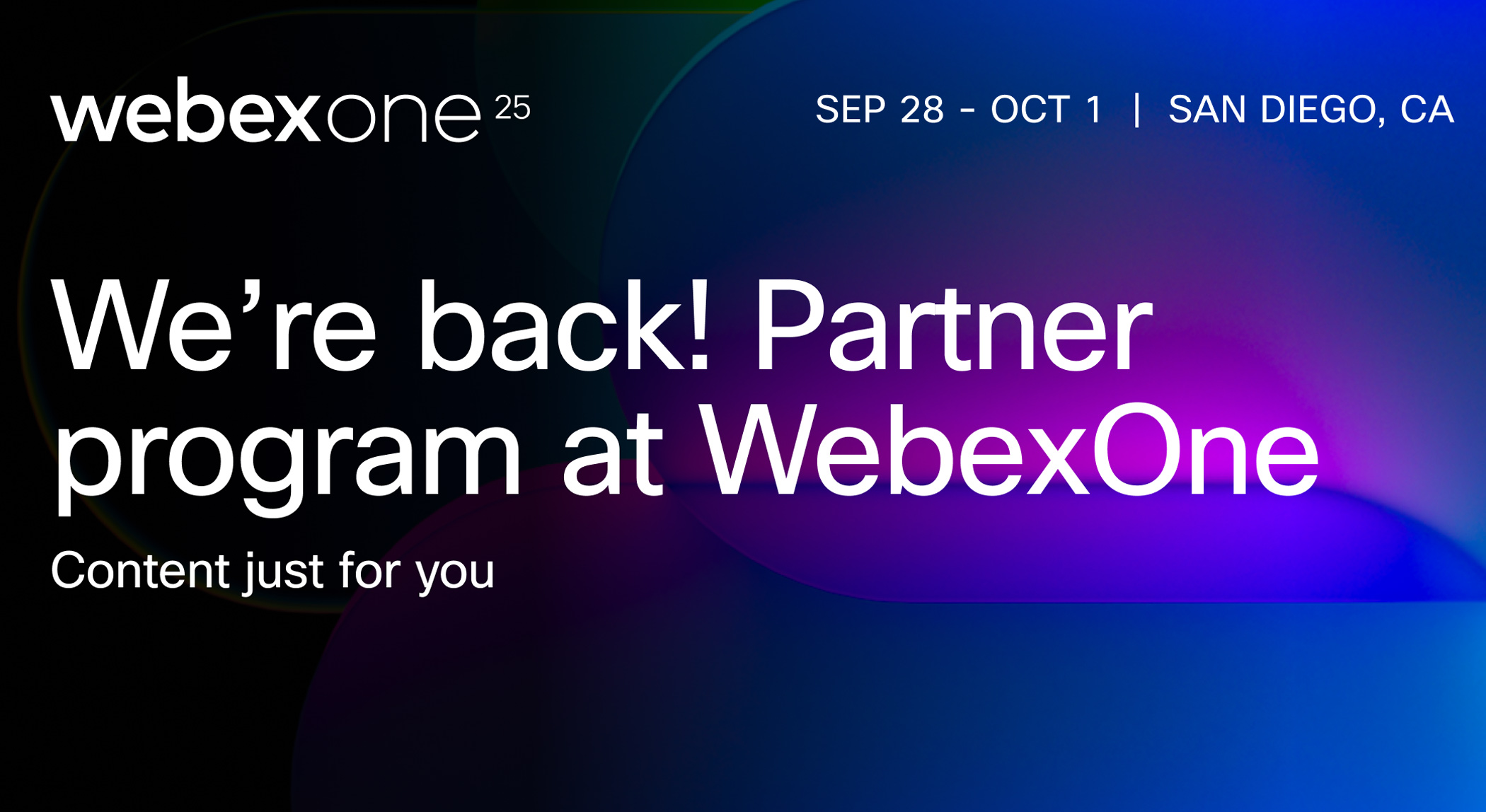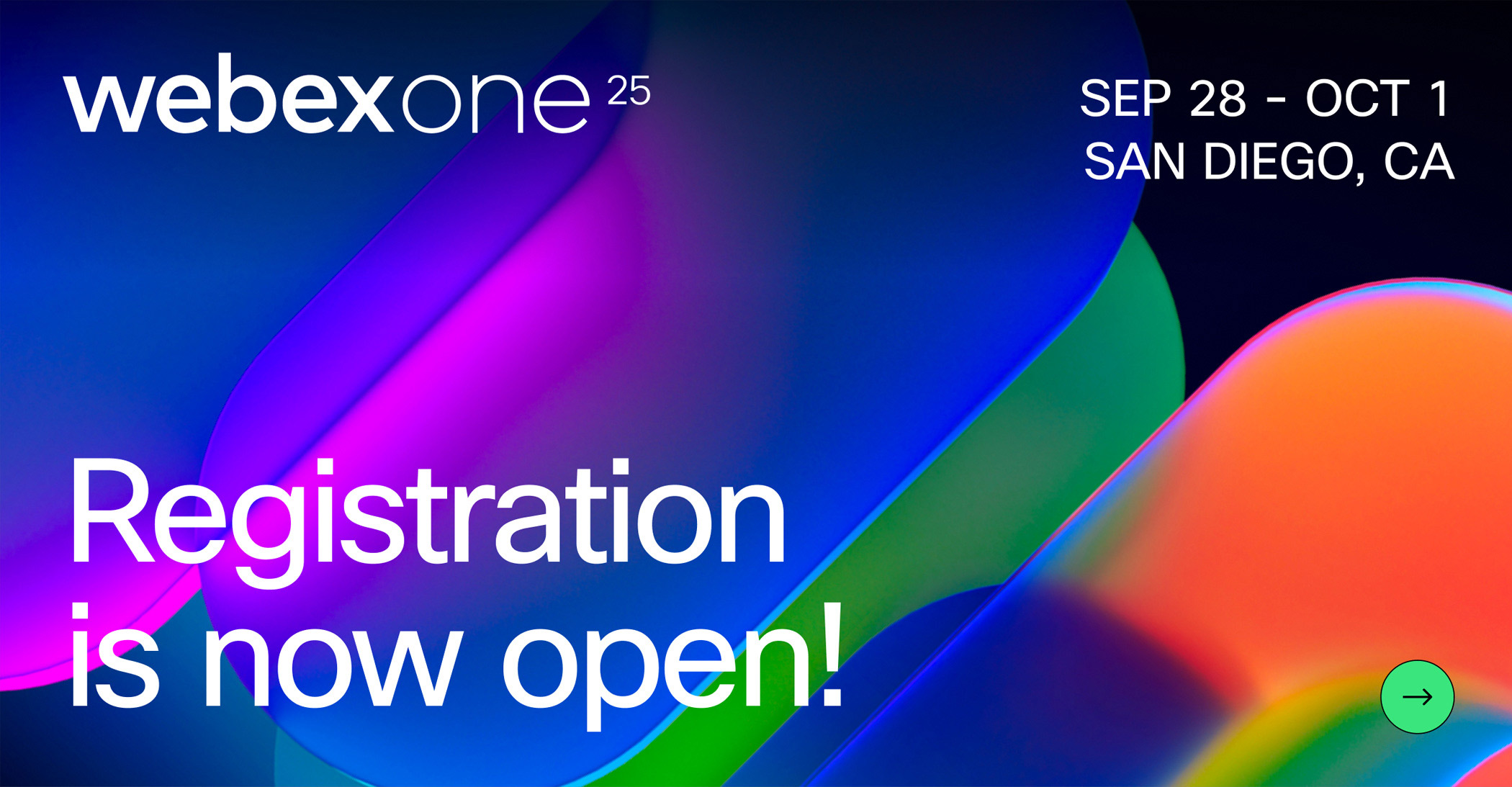If anything is for certain, the way that people experience events has drastically changed in recent years. It’s no longer necessary to be physically present at an in-person event to participate in a session, network with fellow attendees, or engage with sponsors.
With the help of technology, event organizers transformed the physical event into a virtual experience. And although in-person events have returned to prominence, organizations still have plans to provide a virtual component to future events. In fact, according to an EventMB survey, 63% of event professionals see their events becoming hybrid in the future. However, only a third say they’ve developed a solid hybrid strategy to match.
But what exactly is a hybrid event? How do they work, and what are they capable of? More importantly, what does it take to plan a successful hybrid event?
In this guide, we’ll answer these questions and more. We’ll walk you through everything you need to know about planning the ultimate hybrid event and what you stand to gain from the right event platform provider.
What are hybrid events?

Hybrid events combine aspects of in-person and virtual events into a single seamless experience. In simple terms, any physical event that incorporates a virtual component might be considered hybrid.
The hybrid format allows event professionals to reach both a physical and virtual audience. Event content can be experienced in person or through a live stream of the session, which is accessible to the remote attendee on a hybrid event platform or mobile event app.
Whereas virtual events are only accessible to an online audience and physical events are open only to in-person attendees, hybrid formats aim to engage both types of event attendees simultaneously. A successful hybrid event is one that provides the perfect harmony between every physical and virtual element.
Types of hybrid events
With the right event platform on your side, there’s almost no limit to the number of events that can be made hybrid. No matter the size or scope, event professionals can leverage the physical and virtual experience to create truly memorable and immersive events.
Internal hybrid events
Nowadays, there’s no telling where employees are working from on a daily basis. According to a 2022 Gallup survey, 53% of the U.S. workforce expects to continue working in a hybrid model moving forward. Consequently, coming together as a company has never been more important.
That’s where hybrid events come into play. These inward, employee-facing events offer an opportunity for remote and in-office employees to come together, share ideas, and work toward a common goal.
Let’s take a look at some of the many internal events that can be hosted in a hybrid format:
- Sales kickoffs: The annual kickoff event is a crucial piece for every sales department. It’s when team members come together to strategize, organize, and plan ahead for the following year. In a distributed environment, hosting a hybrid kickoff means more employees have a chance to attend, collaborate on ideas, and absorb critical information.
- Town halls: When it comes to making company-wide announcements or staying on the same page, a hybrid meeting is an ideal solution for the modern (and increasingly global) workforce. Adding a virtual element allows every in-office or virtual attendee to participate in the event and voice their opinion, regardless of where they’re located.
- Team building activities: Corporate retreats and team building activities aren’t just a break from the action—they’re a great way to build company culture. Today, it’s not always practical for employees to travel to these events, which is why catering to both audiences is a more inclusive alternative. With a hybrid format, you can maximize employee engagement and foster a happier remote working environment.
- Employee training: How do you cross-train, upskill, or onboard employees in a distributed environment? The short answer is a hybrid event platform. Whether tuning into the session from home or attending in person, every employee has a chance to learn new skills and develop their professional talents.
External hybrid events
Event organizers also commonly plan public-facing hybrid events. Rather than close the doors to employees, event professionals welcome guests of all types to attend. Regardless of the intent, there’s no shortage of external events you can host in a hybrid format:
- Conferences: Hybrid conferences are a mashup of traditional and virtual conferences. Whether attending the live event or watching through an event platform, attendees can enjoy a lineup of engaging event content, including keynote speakers, panelists, breakout sessions, and more.
- Job fairs: What better way to recruit a diverse pool of talent than through a hybrid job fair? This type of event allows organizations to cast a wider recruitment net and secure top candidates. Plus, adding a virtual component is a great way to demonstrate a commitment to inclusivity.
- Fundraisers: When it comes to fundraising for a good cause, every penny counts. That’s why hosting a successful fundraiser depends on maximizing attendance. With the hybrid format, you can cater to both a physical and virtual audience, thus increasing your exposure to potential donors.
What is hybrid event technology?

Hybrid events wouldn’t be possible without technology. Why? Because technology is rooted in every aspect of the virtual experience. Without an event platform, you wouldn’t be able to service a physical and online audience simultaneously.
In simple terms, a hybrid event platform is the home base of your event. Whether it be a conference, trade show, or a concert, the event platform is where everything comes together to create a unique experience. More importantly, it’s where the event planner can manage everything from marketing and engagement to ticketing, sponsorships, and more.
Must-have features in a hybrid event platform
The good news is that there are many event management platforms to choose from. The bad news? If you choose the wrong one, it could seriously hinder the outcome of your event. Luckily, we’ve put together a list of the most essential features to look for in a hybrid event platform.
Registration software
Every hybrid event needs comprehensive, customizable registration software. Registration and ticketing is where your attendee first experiences your event, which means it needs to be optimized appropriately.
The best platforms can be tailored to your needs, but at the very least it should allow you to create custom ticket types. This allows you to differentiate between in-person and virtual attendees.
On-site solutions
In-person event attendees need to be welcomed, checked in, and sent on their way. Look for a partner who provides on-site check-in and badge printing solutions so that you can streamline these procedures on the event day.
Better yet, look for a provider who rents all the event hardware you require. That way, there’s no need to manage multiple vendors simultaneously.
Networking tools
According to a 2022 study by Markletic, networking is commonly cited as one of the top reasons people attend in-person, hybrid, or online events. Thus, you need a platform that enables attendees to make connections and seamlessly launch breakout sessions to continue the conversation.
Seamless live streaming
Never forget about the most crucial virtual element of your hybrid event: the live stream. Your online audience uses live streaming to consume event content, which means it better be a clear, consistent experience.
Engagement tools
Attendee engagement is often a key barometer of success for hybrid events. In turn, you need a hybrid event platform with built-in capabilities that engage audiences of all types. For instance, live polling and gamification not only drive satisfaction but also create unforgettable event experiences.
Sponsorship opportunities
Event sponsors are a key piece of the event management puzzle. They not only help with fundraising, but they also can be an important strategic partnership for your future events. Ensure your choice of platform has the tools to drive engagement toward sponsors, such as display ads and sponsor profiles.
Mobile event app creation
An event app is useful for many different reasons, one of which is that it’s another way for virtual attendees to engage with event content. However, it can also be used to augment the in-person experience. Attendees can track the event schedule, participate in activities, or network with others all from within the event app.
Why host a hybrid event?
From revenue to lead generation, hosting a hybrid event can help businesses achieve a wide variety of goals. Thus, it’s no surprise that over two-thirds of event professionals are incorporating virtual and hybrid formats into their overall event mix.
Here are some of the top advantages of hosting a hybrid event.
Increased reach and accessibility
In-person events aren’t affordable to all types of people. Moreover, they’re also not accessible for some people with disabilities. Hybrid events take these considerations into the planning process and allow such audiences to participate regardless of their circumstances. Without any need to book travel, hotel accommodations, or walk a lengthy venue, hybrid events are simply a more inclusive alternative to traditional experiences.
Greater attendee engagement
Hosting a hybrid event means your content is being live streamed over the internet, but it also means you have a chance to record these sessions for future use. In other words, you can repurpose event content after the event is over, allowing you to continuously engage attendees long after the fact.
Diverse sponsorship opportunities
Not only can sponsors benefit from physical exhibits at the venue, but they can also interact with virtual attendees using virtual booths. These opportunities essentially double your sponsor’s exposure, thus creating new opportunities for lead generation and brand awareness. This allows you to drive engagement toward your sponsors and create a long-lasting and mutually beneficial relationship.
Improved ROI
Hybrid events are inherently more scalable than traditional ones, meaning they reach a wider audience at a smaller cost. These factors translate into a greater return on investment for you and your sponsors. Better yet, with access to event data all in one platform, you can prove the ROI to your stakeholders to communicate event success.
Challenges of hosting hybrid events
Despite their vast benefits, every event has its challenges–hybrid events are no different. Here are three of the top obstacles you need to overcome when planning a hybrid event.
Ticketing strategies that work for all audiences
It’s important to offer prices that are appropriate for the type of experience your attendees are choosing. The best course of action is to offer pricing tiers based on the content that attendees want to engage with. For instance, if virtual attendees only want access to certain aspects of the event, they only pay for what they want. Physical attendees, by contrast, pay a commensurate fee for access to the in-person content.
Planning two experiences for a single event
According to Skift Meetings, more than half of event planners agree that offering both in-person and remote attendees a comparable experience is their toughest challenge when it comes to hybrid planning. The best solution to this obstacle is to choose a hybrid event platform that seamlessly integrates the in-person venue with the virtual experience.
Connecting in-person and virtual attendees
One of an event planner’s greatest challenges is ensuring virtual attendees don’t feel left out of the complete event experience. To overcome this, it’s wise to set up your event so that both audiences are experiencing the same activities through common touchpoints—the event app, push notifications, social media, and so on. This is where having an experience-first event platform will pay dividends.
Want to learn more? Click here to keep reading about hybrid event challenges.
Planning a hybrid event: Key elements of success
Organizing a successful hybrid event is easier said than done. To make sure it goes smoothly, you’ll need to keep a few things in mind:
Goals and objectives
Define what you want out of your event. Are you generating brand awareness or nurturing leads? Deciding on a goal determines how you’ll measure success, but also how you’ll go about achieving your objectives.
Budgeting
Record every item you need to pull off the event effectively. Account for travel, food, venue, technology—anything that’s necessary for hosting the event.
Marketing
Get the word out about your event. Make sure you clarify that it’s hybrid so people know they have options when it comes to attendance. Promote your speakers and activities on social media, your website, and anywhere else you can attract attention.
Engagement
How will you engage your two audiences? Think about the activities you want to run then identify a platform capable of making them a reality. The best solutions offer robust gamification tools, live Q&A, and live polling, among many other ways to enrich the attendee experience.
Technology
A good portion of your audience will be consuming event content virtually, so you should use a platform with the capabilities you need to maximize attendee engagement and drive ROI.
Choosing your hybrid event partner
The event platform is the most pivotal aspect of your hybrid event. After all, it’s what empowers you to create incredible experiences your audience won’t soon forget. That’s why it’s best to consider a few key questions before deciding on a solution:
Does this platform connect both in-person and online experiences?
Hybrid event platforms need to cater to both physical and virtual attendees. But more importantly, they need to bridge the gap between these audiences and allow them to make meaningful connections.
The right platform will offer seamless networking opportunities between either type of attendee. Whether it be attendee profiles, instant messaging, or 1:1 video conferencing, event technology is critical to expanding their network.
How does this platform drive value to my sponsors?
Sponsorships are not to be overlooked. They’re a critical component of the event planning process, not only because they help fund your events, but they also increase exposure and credibility.
With the right provider, you can easily drive engagement toward your sponsors and help them meet their event-day objectives.
What kind of customer support does this platform provide?
Event planning isn’t easy and hybrid event planning is even harder, but the benefits speak for themselves. To truly reap the rewards of your effort, you need a partner with industry expertise.
Choose a vendor whose professional services team will work alongside your planners and ensure your event is a success. Tailor the platform to your needs and lean on their experience when you need the support—that’s what an event planning partner is all about.
Ready to get started? Request a demo of Webex Events to discover how we can help you plan an immersive hybrid event.





